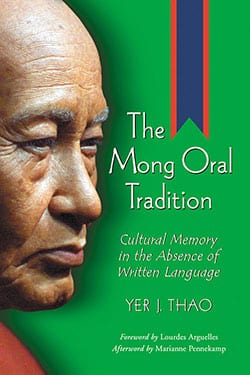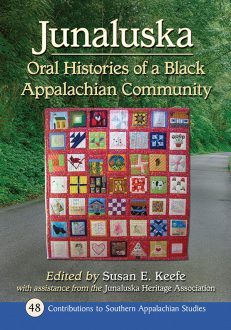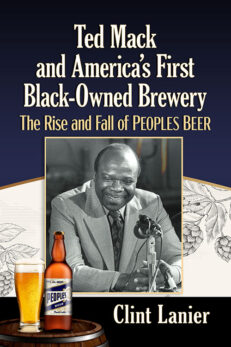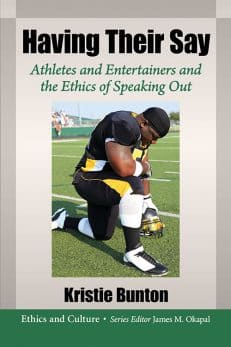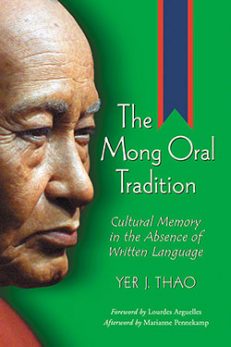The Mong Oral Tradition
Cultural Memory in the Absence of Written Language
$39.95
In stock
About the Book
In 1975, after years of struggle, Communists seized control of the government of Laos. Members of the Mong culture who had helped the U.S. Central Intelligence Agency in their quest to halt the spread of Communism were forced to move to America as political refugees. The Mong, with their strong culture of oral traditions and beliefs, were plunged into a multicultural society where the written word was prevalent. As a result, their oral customs are now being slowly eroded and replaced with a written tradition. Desperate to hold on to their cultural identity and continue the traditions of their ancestors, the Mong still struggle with the dilemma this change in literary perception has caused.
Compiled from numerous interviews, this volume explores the lives of 13 Mong elders. With emphasis on their unique oral tradition and cultural practices, the book discusses Mong rituals, tribal customs, religious beliefs and educational experiences. The main focus of the work, however, is the lifestyle the elders maintained while living in the mountains of Laos. In their own words, they describe their childhood, communities, religious rituals and cultural traditions as well as the ongoing struggle of adjustment to their new homeland. The work also delves into the Mong perceptions of industrialization and the generational conflict that immersion into a literate society has caused. The author himself is a member of the Mong culture and brings a personal perspective to preserving the oral traditions of this unique ethnicity. The work is also indexed.
About the Author(s)
Bibliographic Details
Yer J. Thao
Foreword by Dr. Lordes Arguelles
Format: softcover (6 x 9)
Pages: 210
Bibliographic Info: 13 photos, bibliography, index
Copyright Date: 2007
pISBN: 978-0-7864-2749-9
eISBN: 978-0-7864-8199-6
Imprint: McFarland
Table of Contents
Acknowledgments v
Foreword by Lourdes Arguelles xi
Preface 1
1. Oral Culture and Multicultural Education 5
Living the Vision of Oral Culture in Modern Society 6
Oral Culture and Written Culture Together in One Society 8
Summary 10
2. The Mong Oral Tradition and Cultural Practices 11
Theories of Mong Origin 11
Mong Oral Cultural Tradition 14
Mong Oral Culture Practices 20
Farming 24
Parenting 27
Rituals and Customary Traditional Values 28
Summary 30
3. Mong Society and Sociocultural Settings 31
The Mong Kinship System 31
Cultural Identity 37
The Environment 42
Social Gatherings 49
Summary 51
4. Oral Tradition as a Source of Knowledge 52
Traditional Stories 52
Songs 57
Sacred Chanting Songs 61
Funeral and Wedding Songs 63
Soul Calling Songs 69
Ritualistic Secret Language Chanting Songs 70
Summary 72
5. American Education and the Transformation of the Mong Community 73
The Loss of the Oral Tradition Custom’s Values 73
Language and Culture Loss 82
Religious Conflict 90
Summary 98
6. The Stories of Mong Elders 99
Elder Boua Tong Yang 100
Elder Lee Xiong 105
Elder Nhia Cha Yang 113
Elder Jer Thao 118
Elder Xai Dang Moua 123
Elder Phoua Her 128
Elder Chong Yer Thao 132
Elder Mai Vang 137
Elder Cha Shoua Hang 143
Elder Chai Xiong 149
Elder Tong Yao Her 155
Elder Ying Yang 159
Elder Xao Cheng Lee 165
7. Keeping Oral Culture Alive Through the Mong Elders 171
Mong Oral Tradition and Culture Elements 178
Understanding the Interconnectedness of Mong Oral Culture 181
Summary 184
Afterword by Marianne Pennekamp 185
Bibliography 187
Index 193
Book Reviews & Awards
- Choice Outstanding Academic Title
- “13 exquisite oral histories with Hmoug seniors…among the best first-person accounts of Hmong life in Laos from the 1920s to the 1960s…required reading for all audiences interested in this group…the most accurate translations of spoken Hmong into English text that have ever been published. Highly recommended. All levels/libraries”—Choice
- “informed by solid scholarship and his own lived history as a Mong in the United States, Yer J. Thao has produced an outstanding treatise—not only about the history and culture of a people, but the power and dignity of the oral tradition. It is a book that should be read by all educators seeking to understand the cultural dilemmas of traditional indigenous populations, in the midst of an unrelenting culture of written literacy.”—Antonio Darder, Educational Policy Studies, University of Illinois, Urbana Champaign
- “Dr. Thao has crafted a thorough and thoughtful description and analysis of oral cultures. His credibility on this topic comes through his impressive amount of research and citation of valid sources of information. This book is a ‘must-read’ for anyone interested in the dynamic interaction of language, culture, and education in today’s multicultural society.”—Dr. Armeda Reitzel, President, Humboldt County Historical Society

